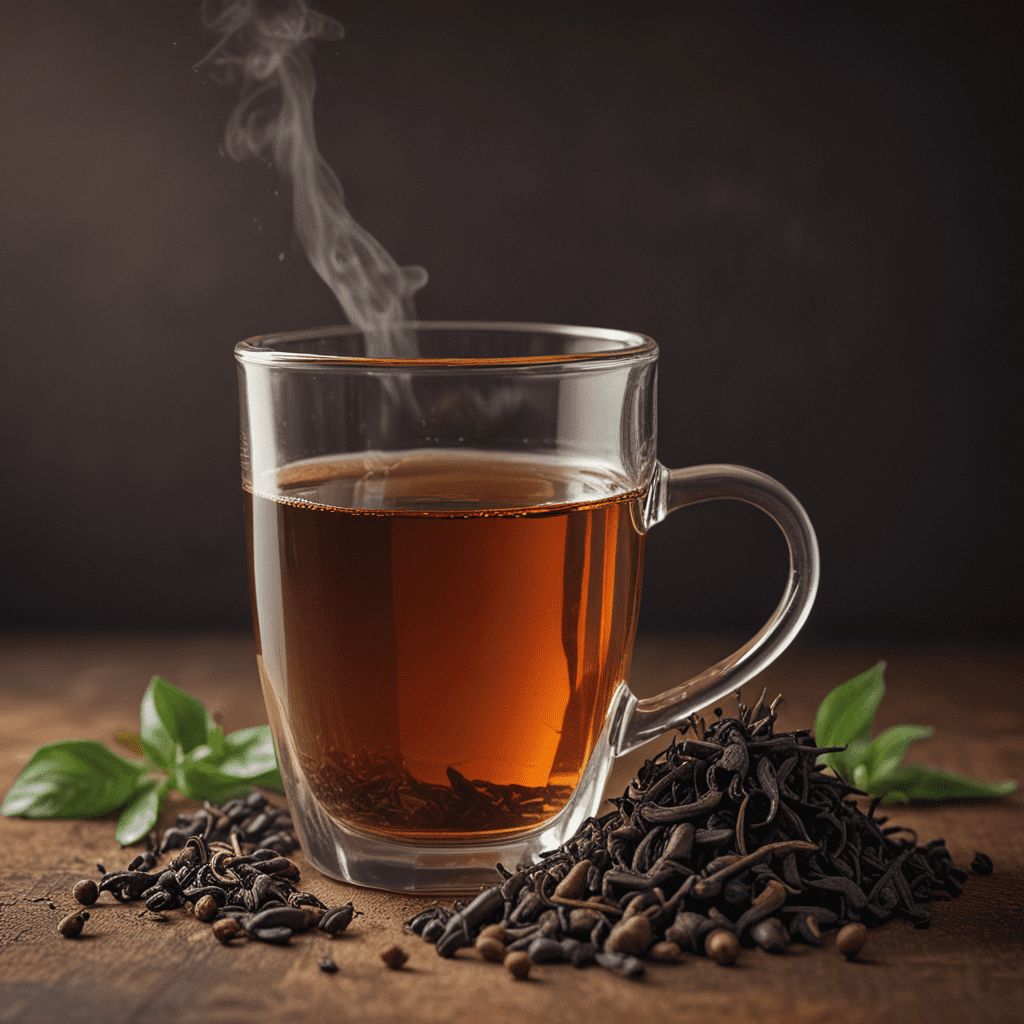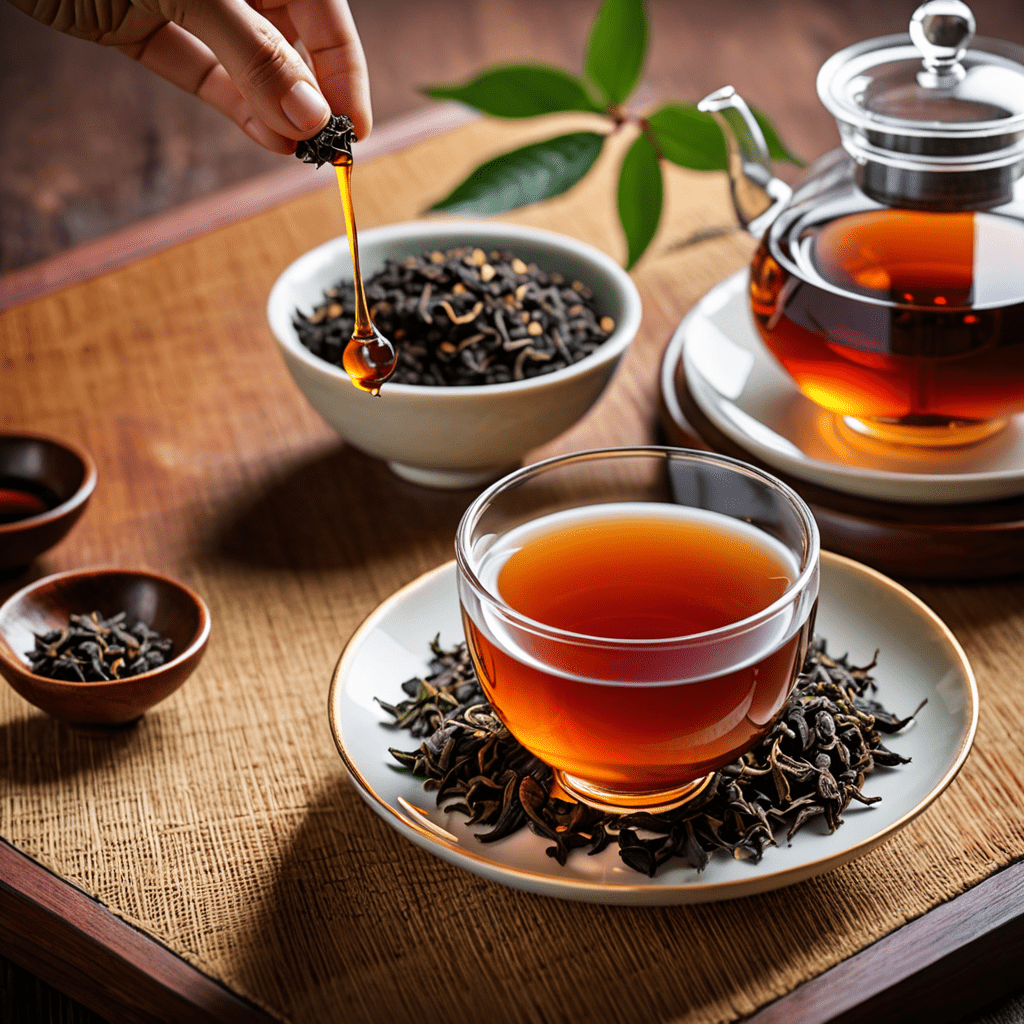Introduction
Assam tea, renowned for its bold and malty brew, has captured the hearts of tea enthusiasts worldwide. Originating in the lush northeastern Indian state of Assam, this black tea has a rich history, unique characteristics, and a profound global impact.
Origins and History of Assam Tea
The origins of Assam tea can be traced back to the 1820s when British explorers discovered wild tea trees growing in the Brahmaputra Valley. Recognizing the potential of these trees, the British established tea plantations in the region, laying the foundation for the thriving tea industry that exists today.
Unique Climate and Soil Conditions
The climate and soil conditions in Assam are ideally suited for tea cultivation. The region experiences abundant rainfall, high humidity, and warm temperatures, creating a favorable environment for tea plants to flourish. The alluvial soil, rich in organic matter and minerals, provides essential nutrients for the development of robust and flavorful tea leaves.
Assam Tea Plantations
Assam is home to vast tea estates that stretch across undulating hills and plains. These plantations are characterized by rows of carefully tended tea bushes, each plant meticulously pruned and nurtured to produce the highest quality tea leaves. The skilled workers in these plantations possess generations of knowledge and expertise in cultivating and harvesting tea.
Processing Methods: Orthodox vs. CTC
Assam tea is predominantly processed using two distinct methods: orthodox and CTC (crush, tear, curl). Orthodox processing involves a traditional approach where the tea leaves are withered, rolled, and fermented before being dried. This method produces tea with a full-bodied flavor and a strong, malty character. CTC processing, on the other hand, utilizes machines to crush, tear, and curl the tea leaves, resulting in a more brisk and invigorating brew.
Flavors and Characteristics of Assam Tea
Assam tea is celebrated for its distinctive robust and malty flavor. The brew is typically characterized by a deep amber hue, a full-bodied texture, and a lingering, satisfying finish. The strong maltiness of Assam tea is attributed to the unique combination of soil conditions and processing methods employed in the region. Many Assam teas also exhibit notes of honey, fruit, and spice, adding complexity and depth to their flavor profile.
Health Benefits of Assam Tea
Assam tea is not only a delicious beverage but also offers a range of health benefits. The tea is rich in antioxidants, which can help protect against cell damage and reduce the risk of chronic diseases. Assam tea has also been shown to have anti-inflammatory properties, which may aid in reducing inflammation throughout the body. Additionally, the caffeine content in Assam tea can provide a boost in alertness and energy levels.
Global Significance and Recognition
Assam tea has achieved global recognition and is exported to countries worldwide. It is a popular choice for blending and is often used as a base for breakfast teas and chai blends. The unique flavor and aroma of Assam tea have made it a favorite among tea connoisseurs and casual tea drinkers alike. Today, Assam tea is considered one of the most important and influential black teas in the world.
Cultural and Social Impact of Assam Tea
The tea industry has played a significant role in shaping the culture and society of Assam. The region's economy is heavily dependent on tea production, and tea plantations provide employment for a large number of people. Assam tea is deeply ingrained in the local culture and traditions, and many festivals and events center around the celebration of tea. The tea gardens of Assam are also popular tourist destinations, offering visitors a glimpse into the fascinating world of tea cultivation and processing.
Conclusion: The Legacy of Assam Tea
Assam tea has a rich history and legacy spanning over a century. Its unique flavors, health benefits, and global significance have made it an indispensable part of the tea world. The skilled tea workers, rolling hills of plantations, and ancient traditions associated with Assam tea continue to captivate tea enthusiasts and contribute to the enduring legacy of this exceptional brew.
FAQs
What is the best way to brew Assam tea?
Assam tea can be brewed using various methods, but the traditional approach involves using a teapot. Add loose tea leaves to the teapot and pour hot water over them. Allow the tea to steep for 3-5 minutes, depending on the desired strength. Strain the tea into cups and enjoy.
What are the different grades of Assam tea?
Assam tea is graded based on the size and quality of the leaves. Higher grades, such as OP (Orange Pekoe) and BOP (Broken Orange Pekoe), consist of larger, whole leaves and produce a more flavorful brew. Lower grades, such as Fannings and Dust, are made from smaller, broken leaves and are often used in tea bags.
How long does Assam tea last?
Properly stored Assam tea retains its freshness for up to 2 years. Store the tea in an airtight container in a cool, dry place away from direct sunlight and moisture.


